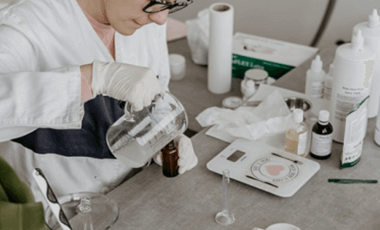






Many common household cleaning products that we easily access from the supermarkets contain chemicals that can harm your body. It is essential to start being observant and knowledgeable with the seemingly unimportant ingredient list at the back of our products. By doing so, you are building a safe and non-toxic environment for you and your family.


Start by reading the labels of the household cleaning products you use regularly. Manufacturers are not required to list ingredients on household products. However, signal words and hazard symbols can tell us how toxic a product is. Look out for signal words such as: DANGER and WARNING.
 octoxynols)
octoxynols)With knowing how such chemicals can affect our health and the active ingredients causing these negatively effects our health. Let’s take these labels seriously and start paying attention to the actives we are using in our homes.

Thinking of changing up the interior of your room but not wanting to spend excessively? Here are some tips to help you perfect a DIY home painting project!

In this article, we will learn more about the commonly used disinfecting active ingredients in our homes and how they compare to one another!

With the current Covid-19 outbreak and no effective vaccine available in the near future, maintaining personal hygiene is still the best precaution against the virus. One way is definitely the use of hand sanitizers when washing of hands is unavailable. In this article, we will discuss the effectiveness of alcohol-free hand sanitisers and whether they can protect us from this Covid-19 virus.